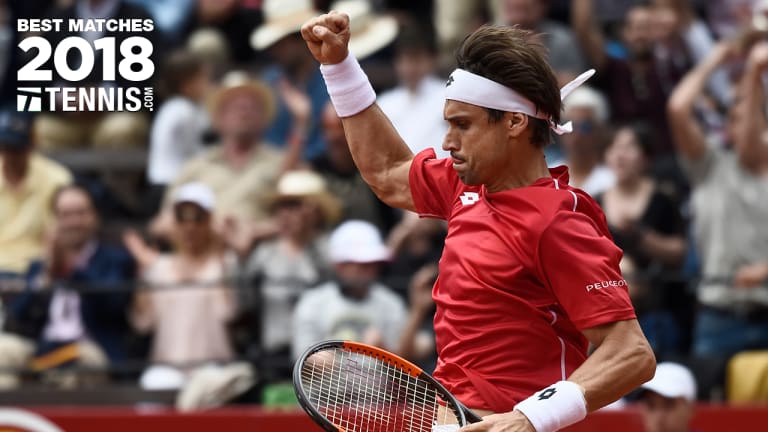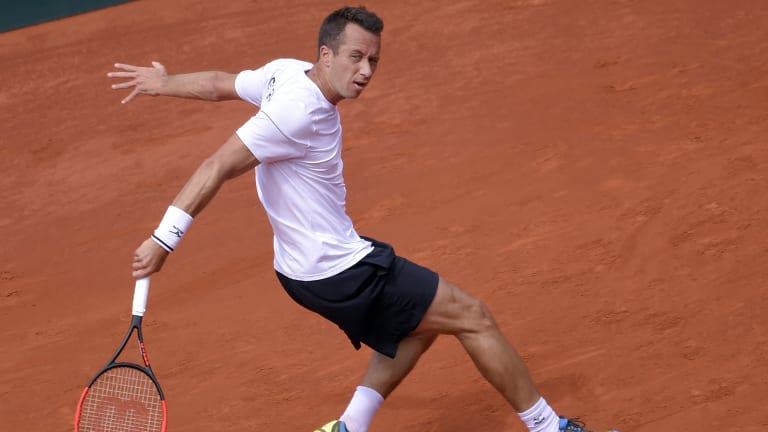Beyond all of that, this encounter took place during the final year of Davis Cup’s traditional home-and-away format, which will be discarded next season after 118 years. Ironically, over the course of its four hours and 51 minutes, Ferrer-Kohlschreiber would showcase everything that was already great about the competition that the ITF was determined to leave behind. Ferrer’s 7-6 (1), 3-6, 7-6 (4), 4-6, 7-5, in which each man finished with 185 points, will go down as the game’s last great bullfight.
The entire weekend was a showcase for a team competition that had once been the most prestigious in tennis. Over three days, Valencia’s Plaza de Toros, which was festooned in the red and yellow of the Spanish flag, echoed with innumerable “Olé!”s; with the chants, songs, hand claps, and foot stomps of a capacity crowd of 12,000; with the sometimes-happy, sometimes-woozy horn blows of a marching band; with the never-ending exhortations of the world’s No. 1 player at that time, Rafael Nadal.
On the tie’s opening day, Nadal and Germany’s Alexander Zverev had each won easily. The 21-year-old Zverev began the proceedings by making Ferrer, who would retire at the end of 2018, look every one of his 36 years in an easy straight-set win. Now, on Sunday, Ferrer had a chance at redemption.
Ferrer and Kohlschreiber fought like the slowly-declining but still-proud veterans they were. Faced, suddenly, with one of the most nerve-wracking moments of their long careers, they missed as many shots as they made, and gave away as many leads as they built—between them, the two finished with just 89 winners against 210 unforced errors. This match was about tenacity and courage under pressure, but it was also about the vulnerability under pressure. Survival, rather than brilliant shot-making, was the sole goal.

